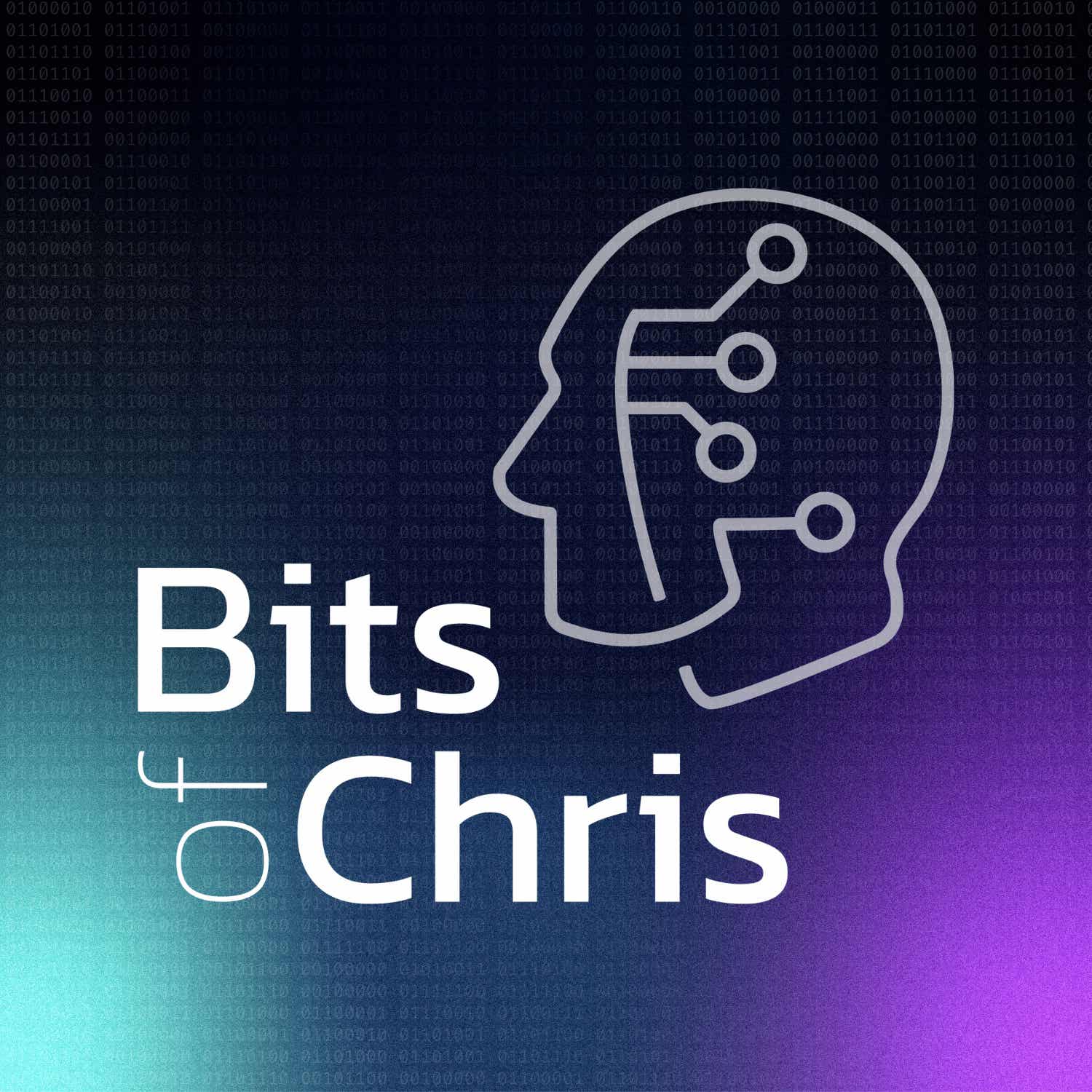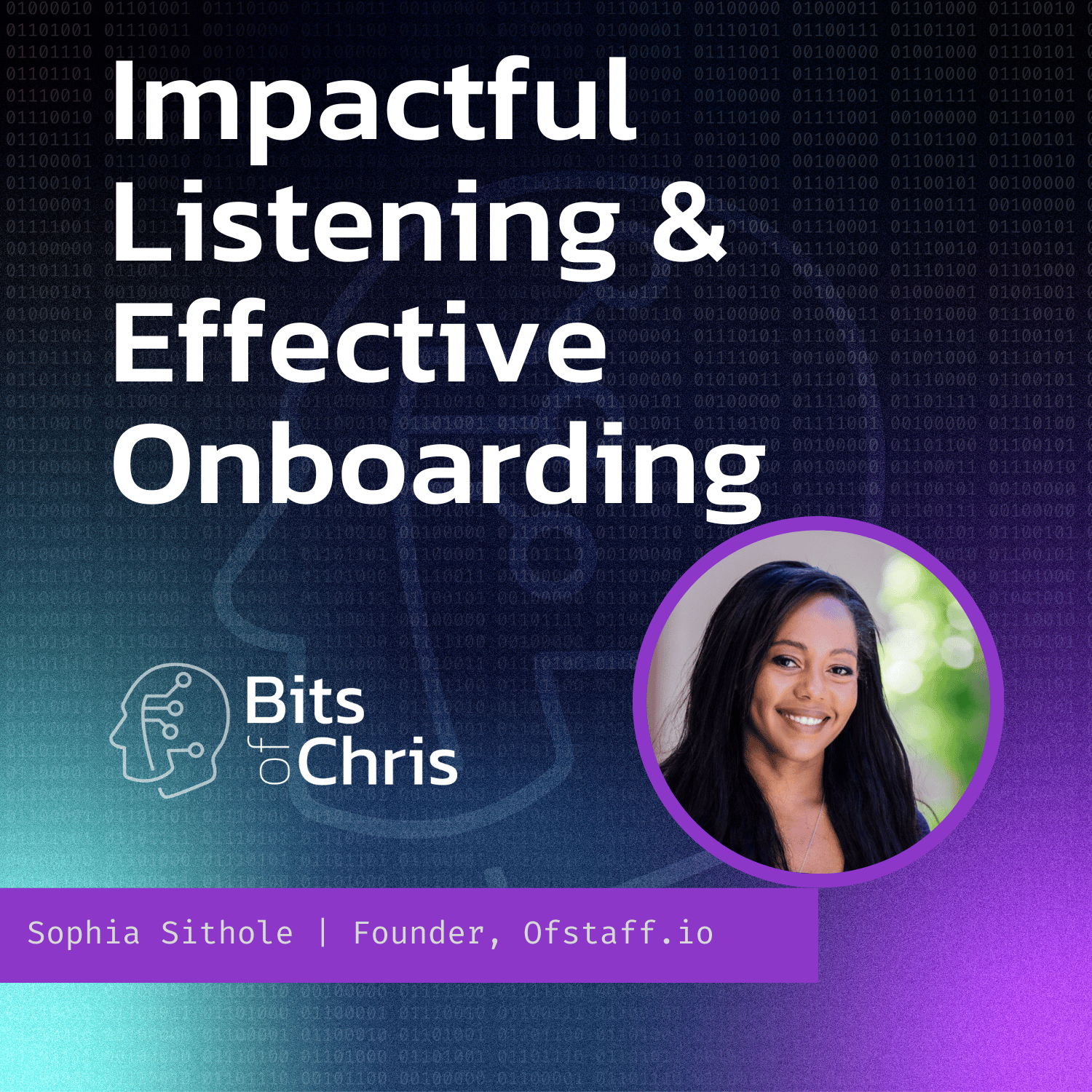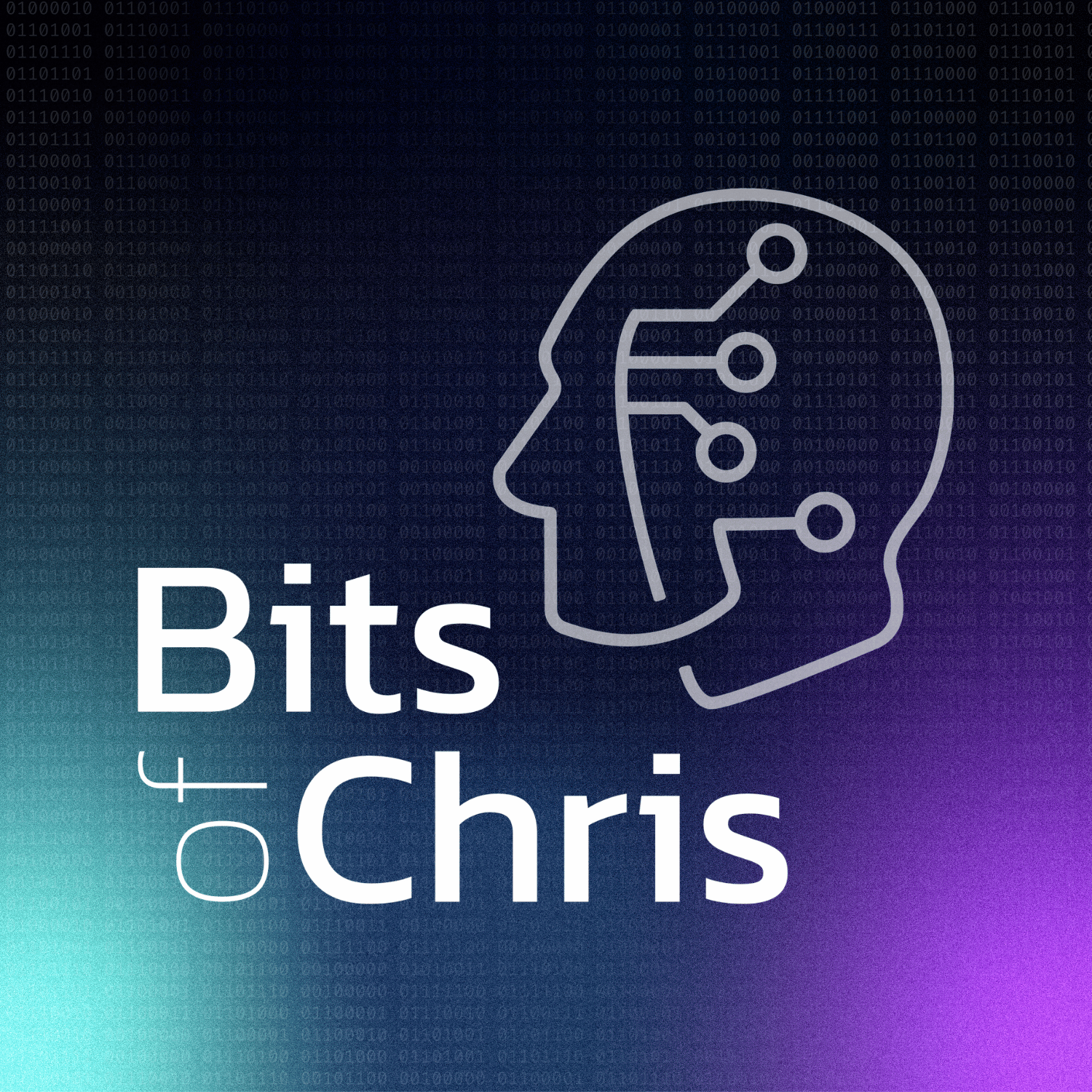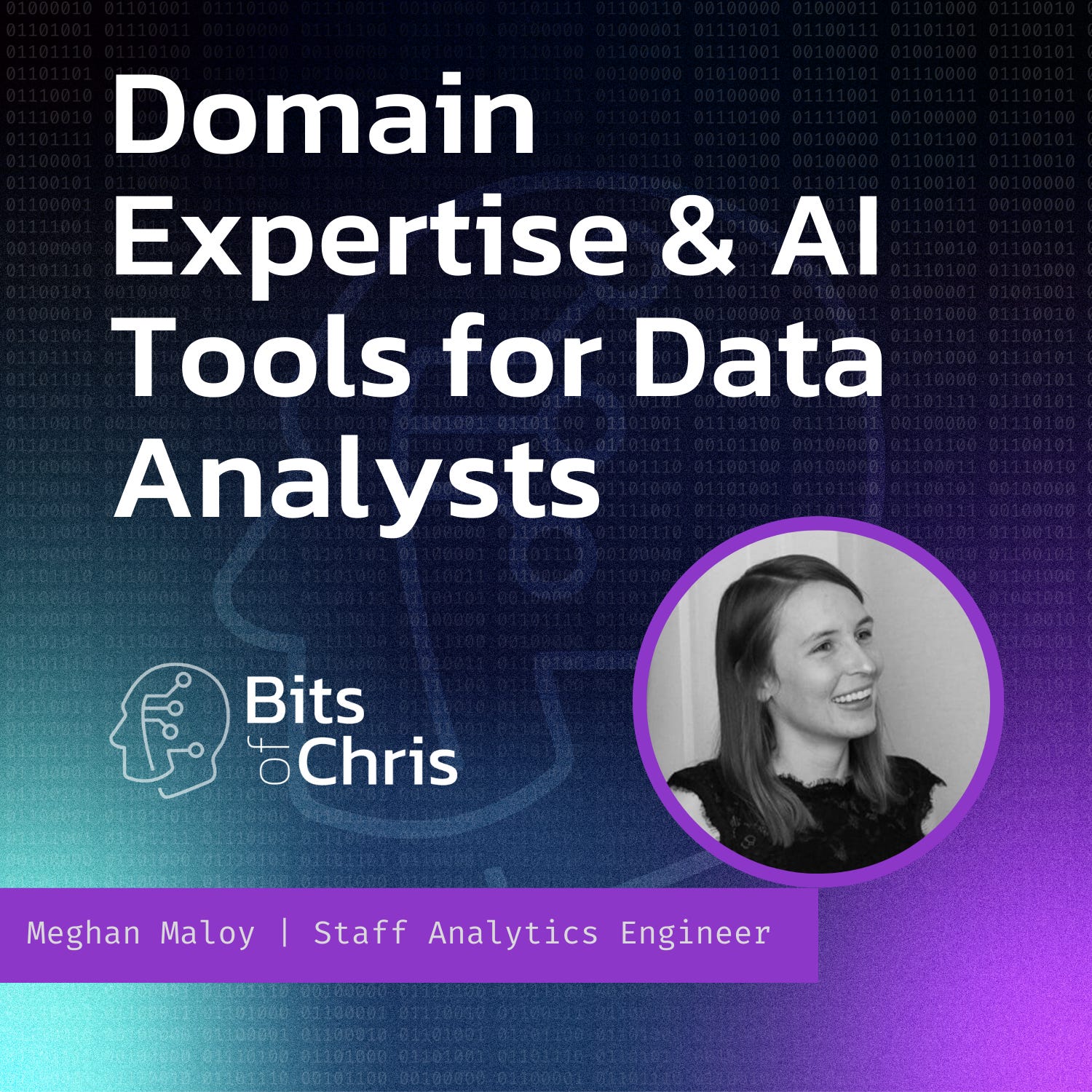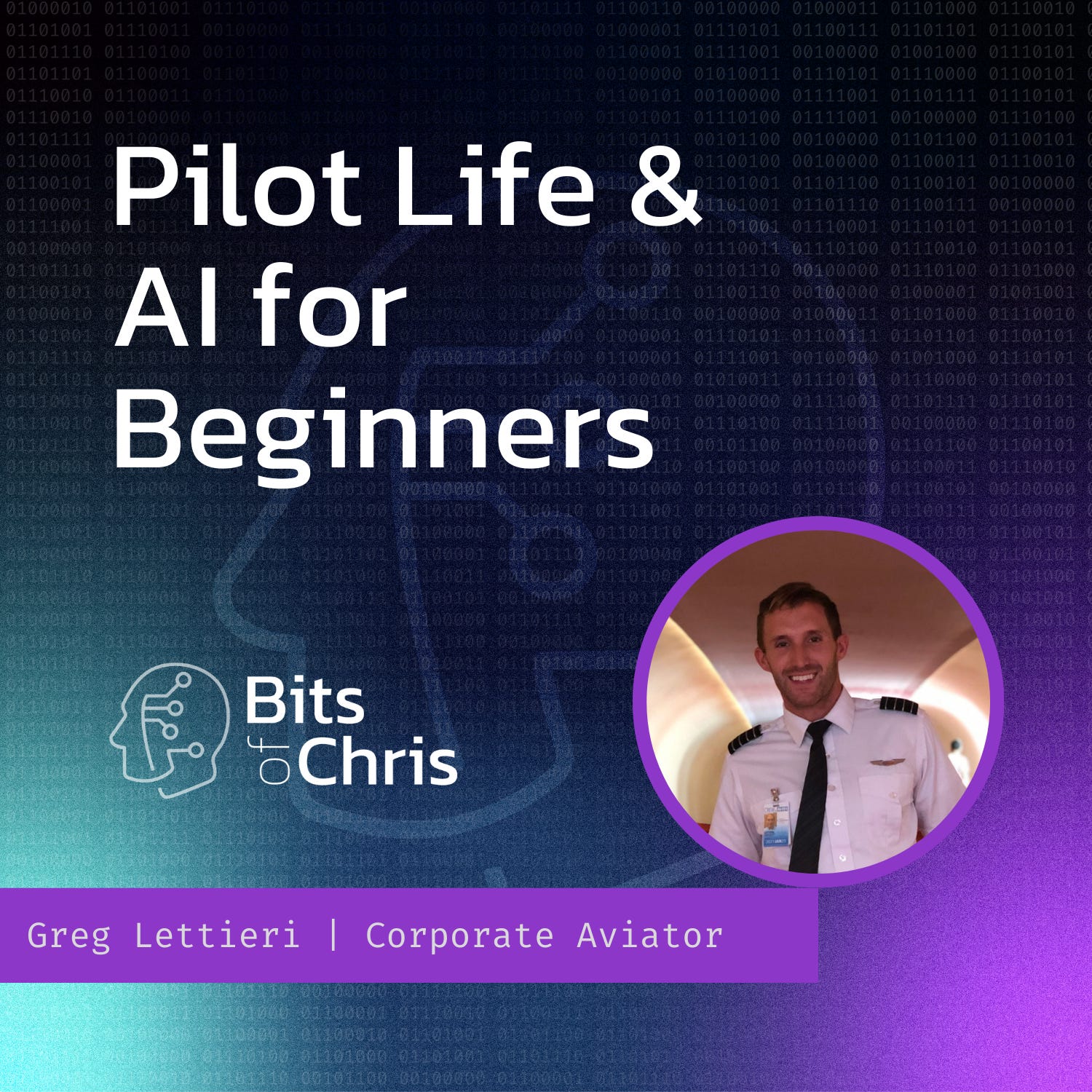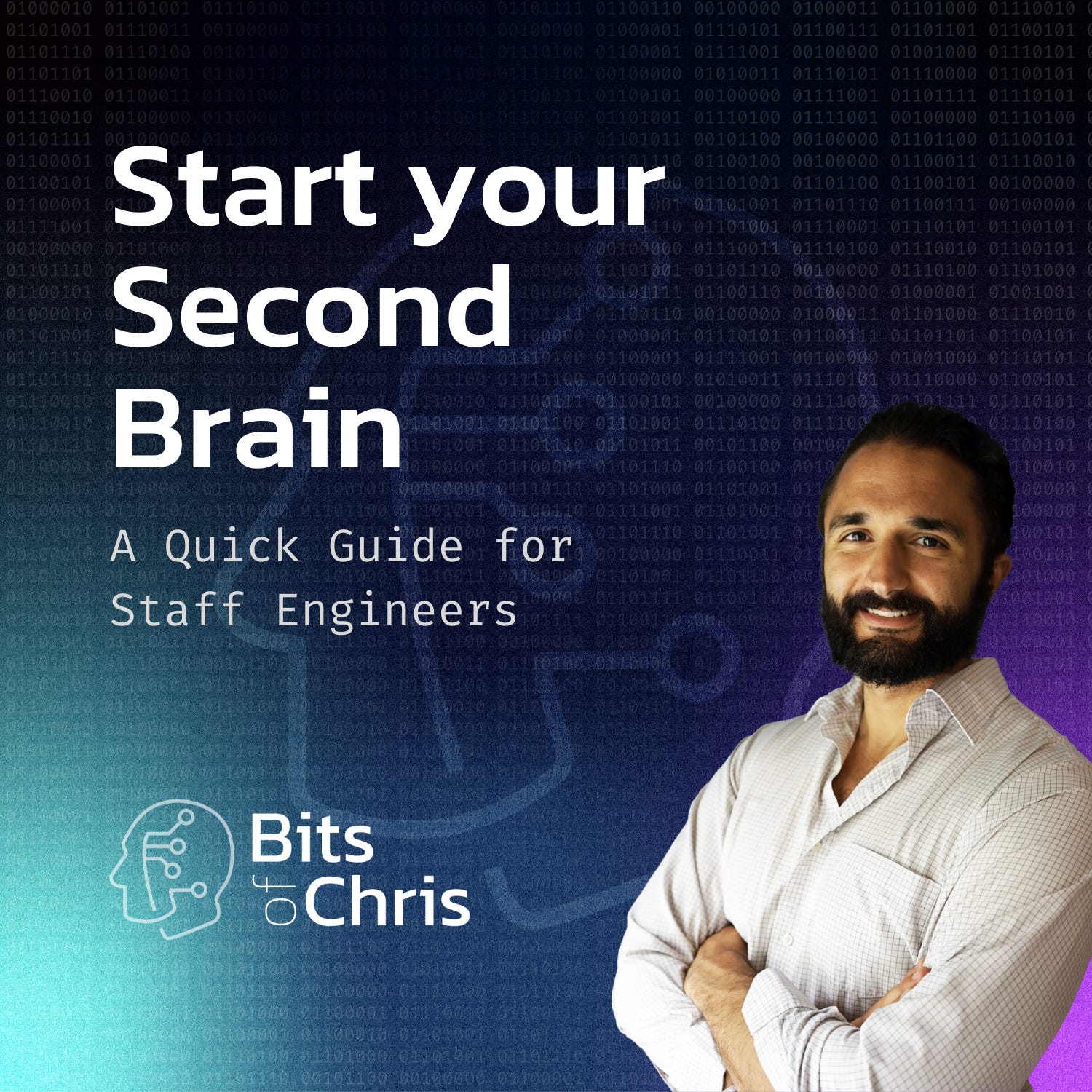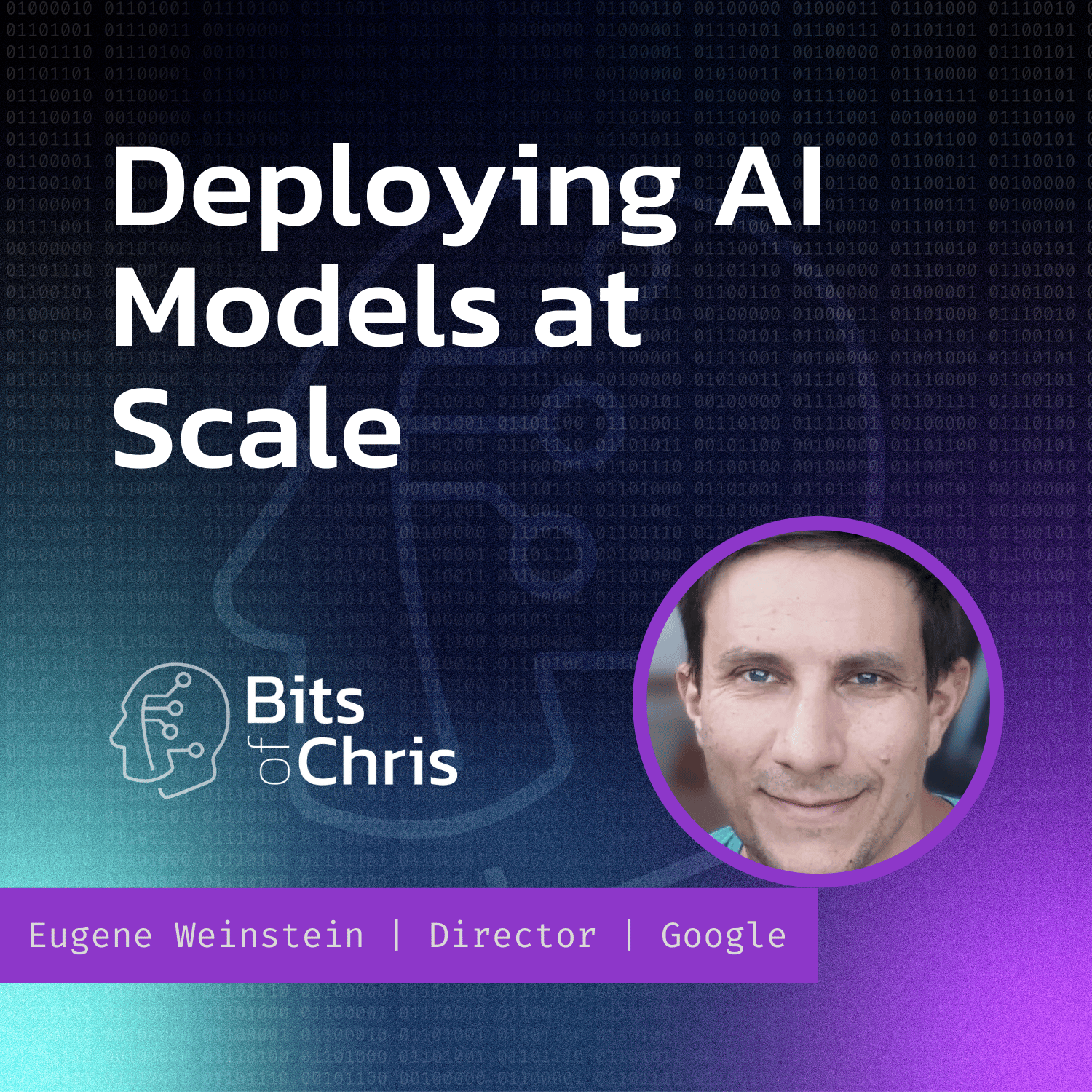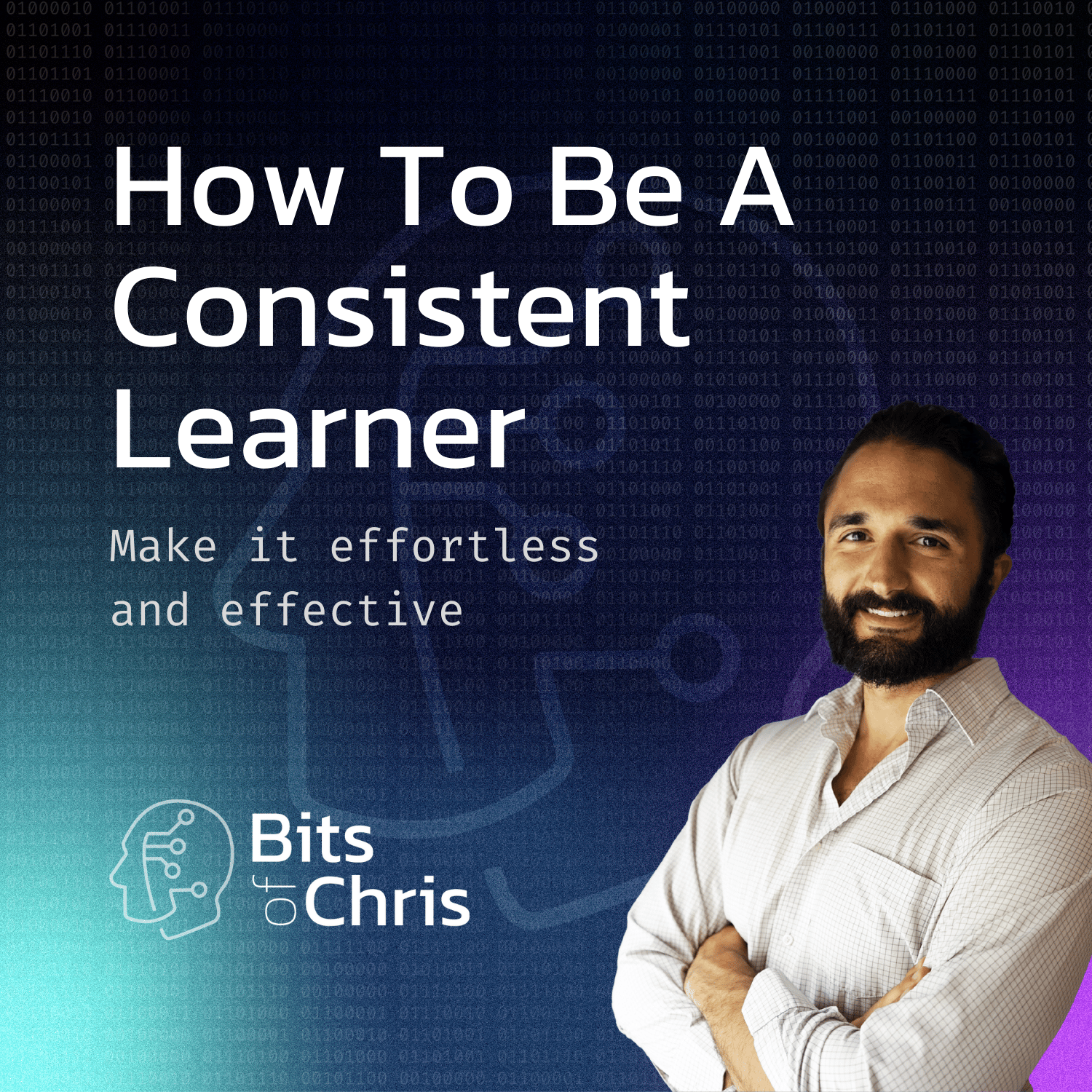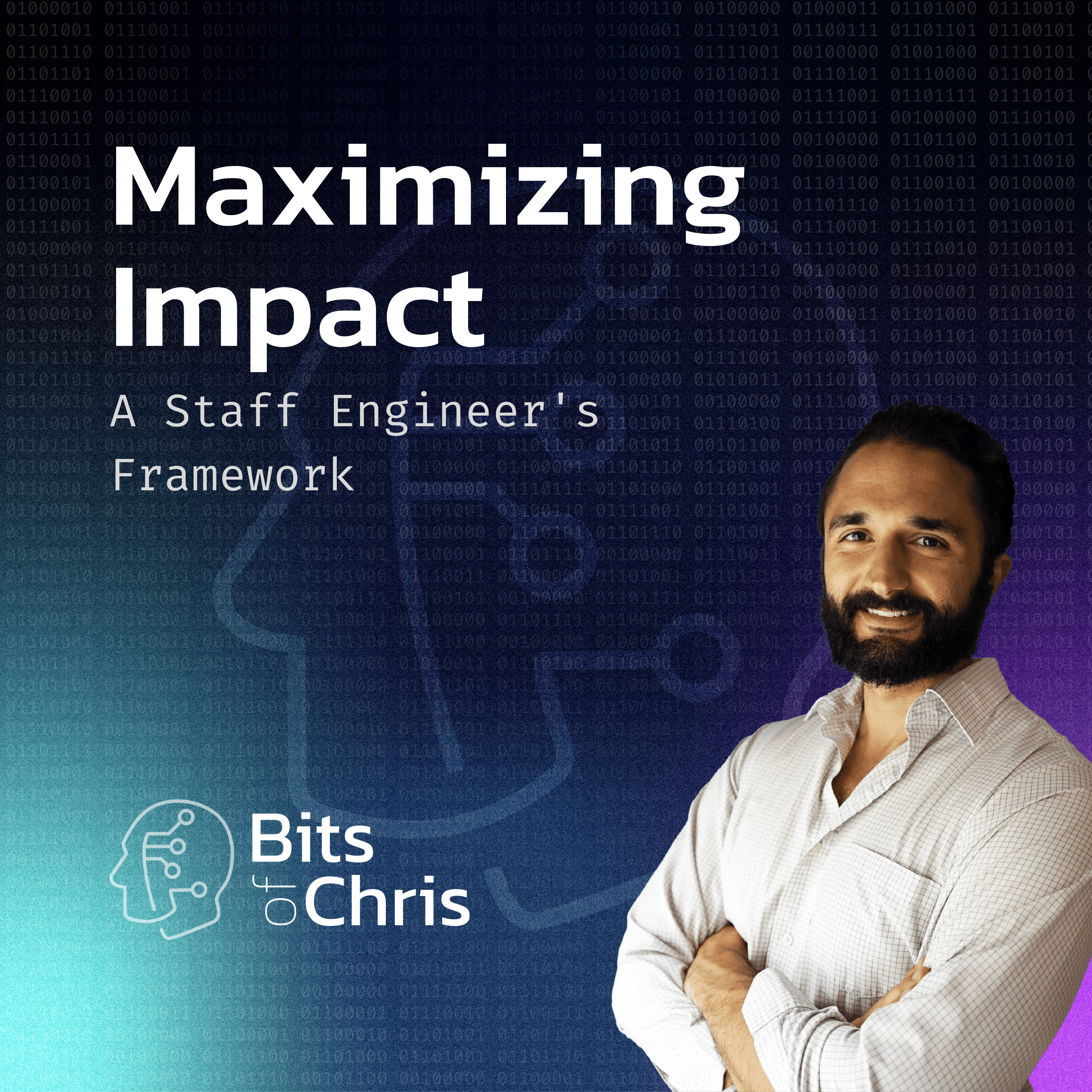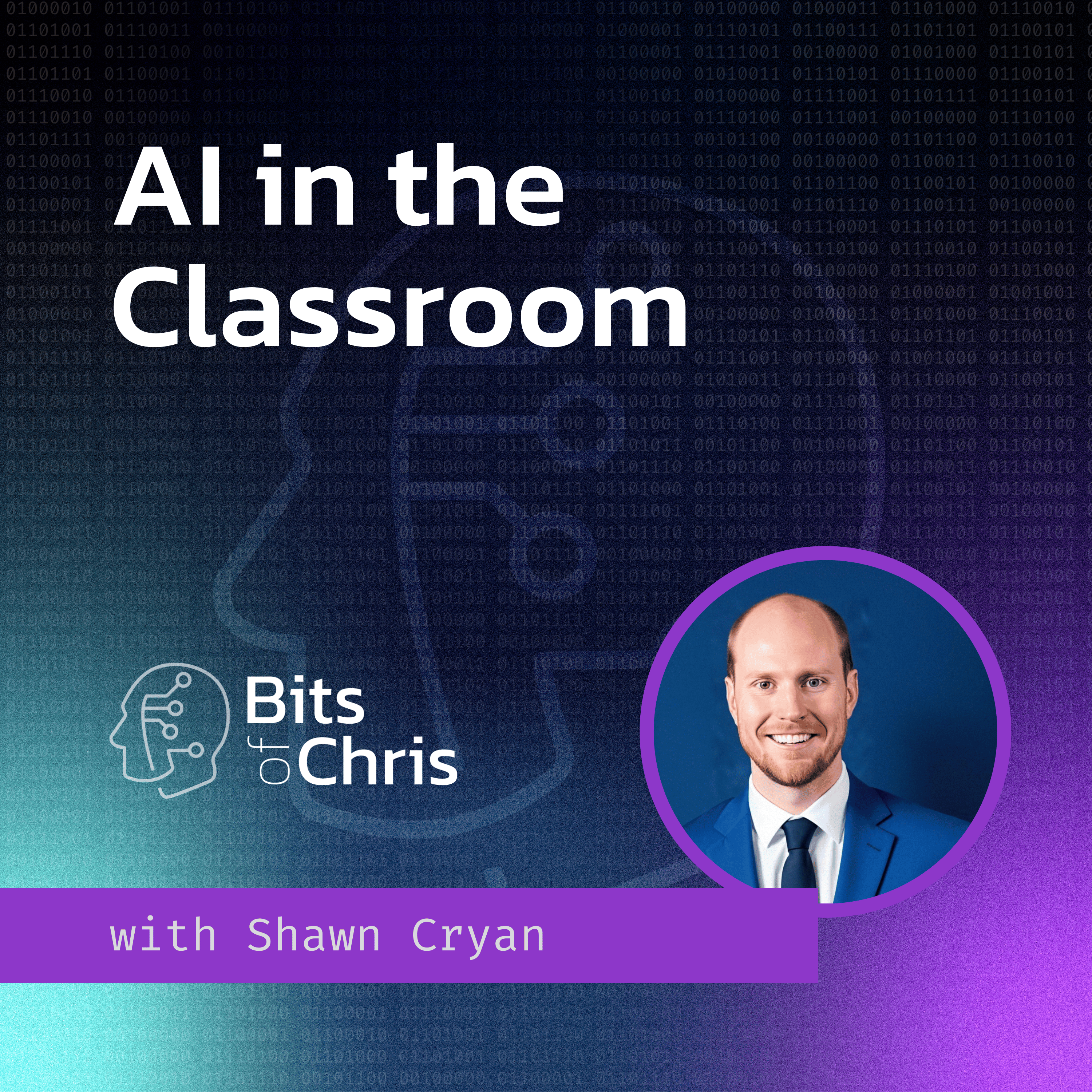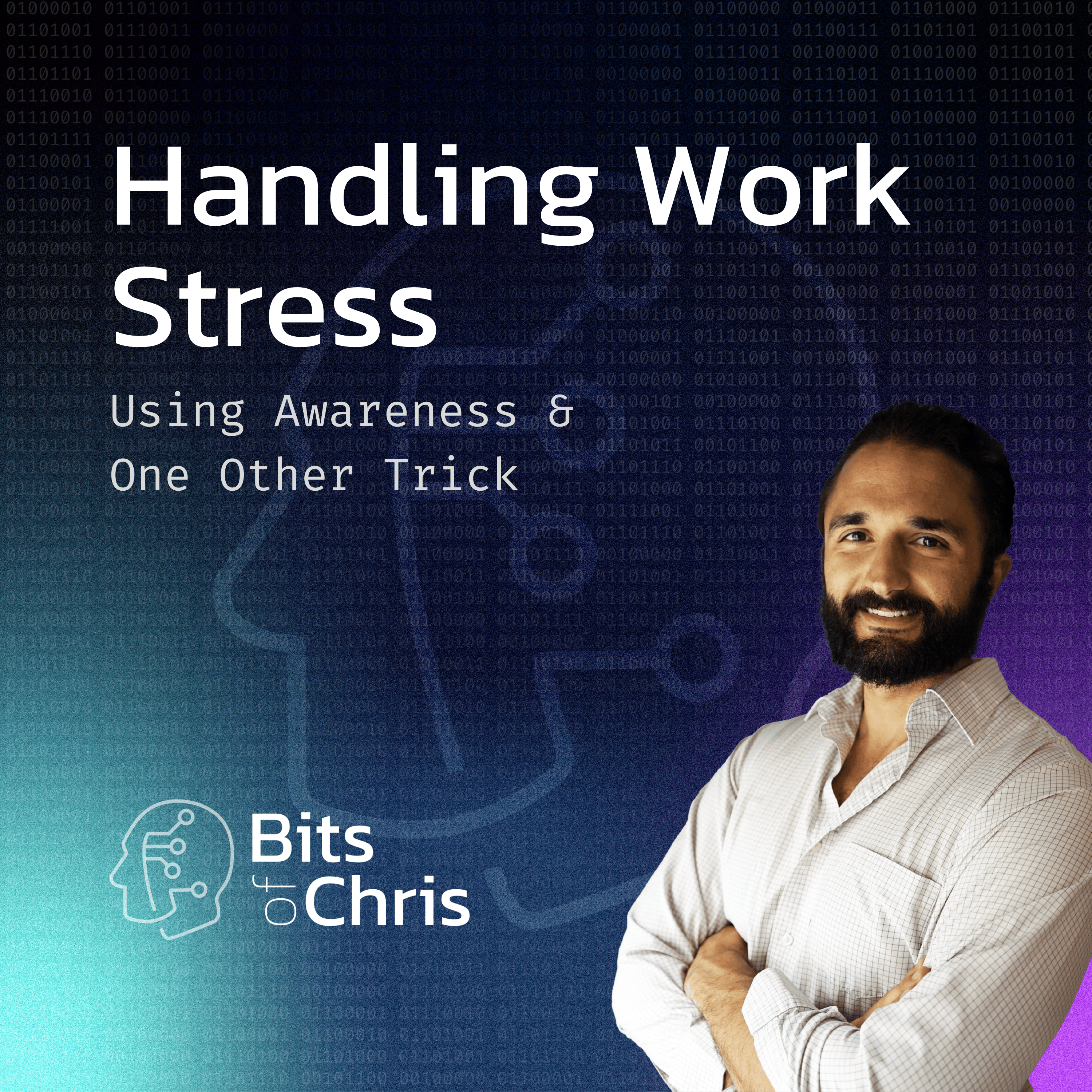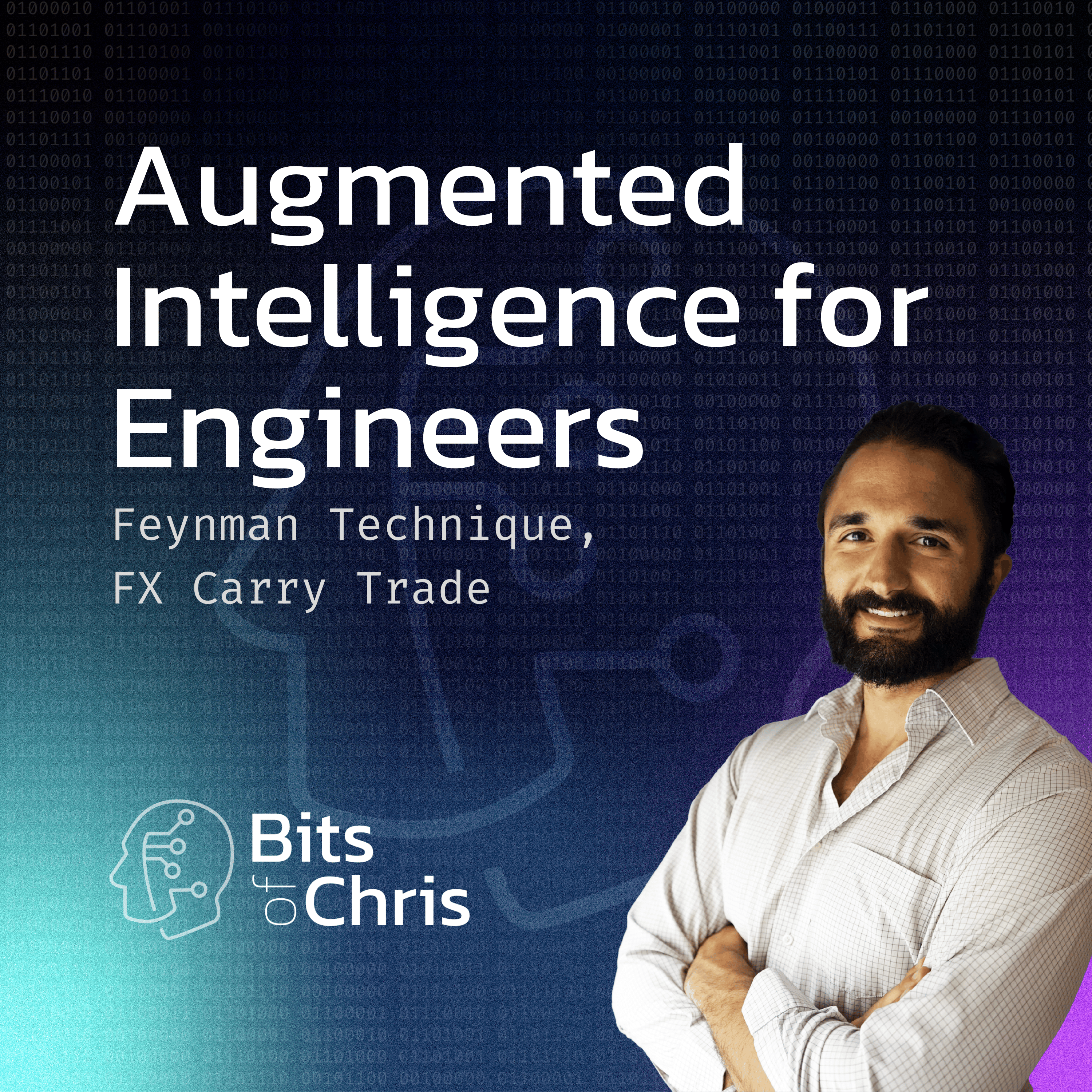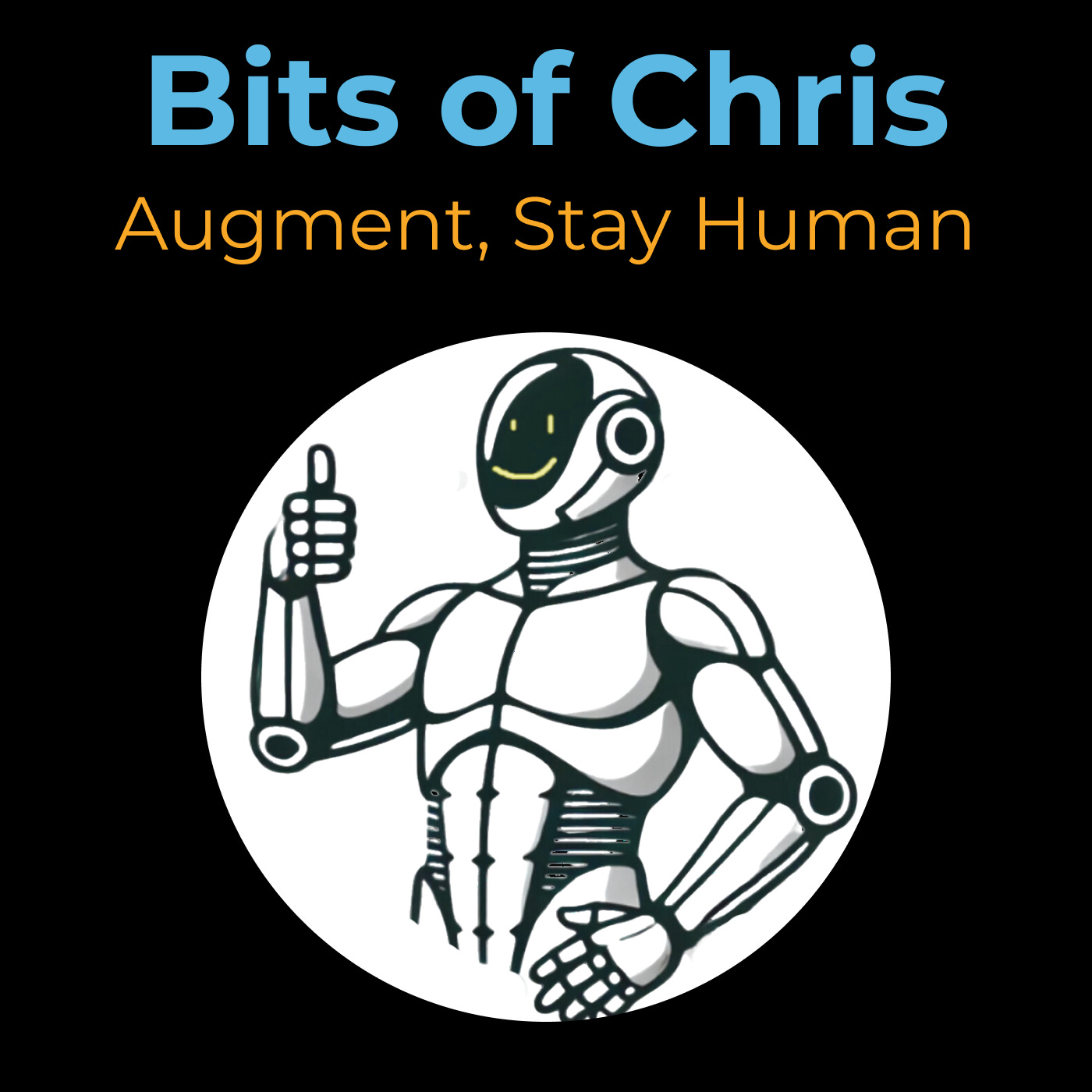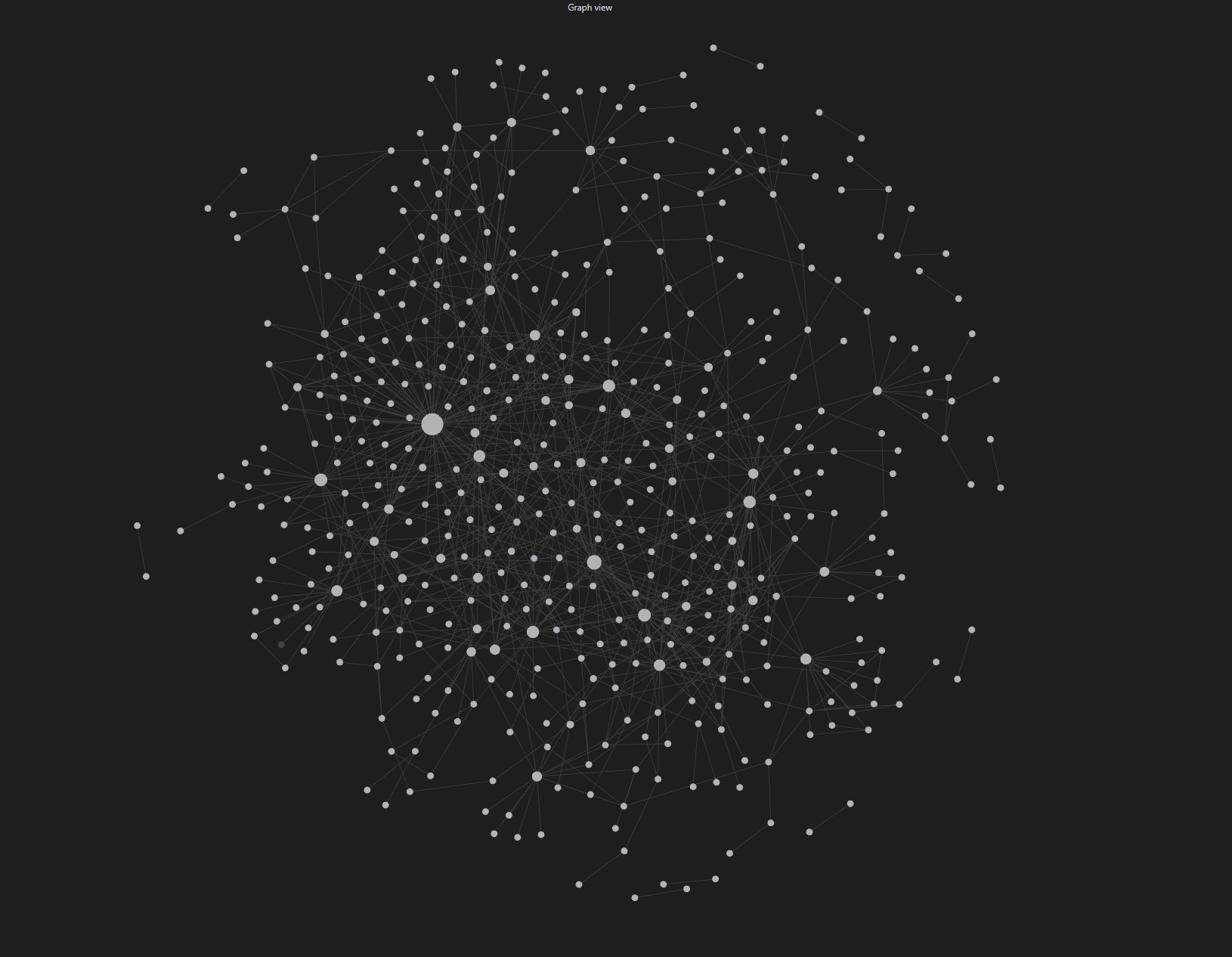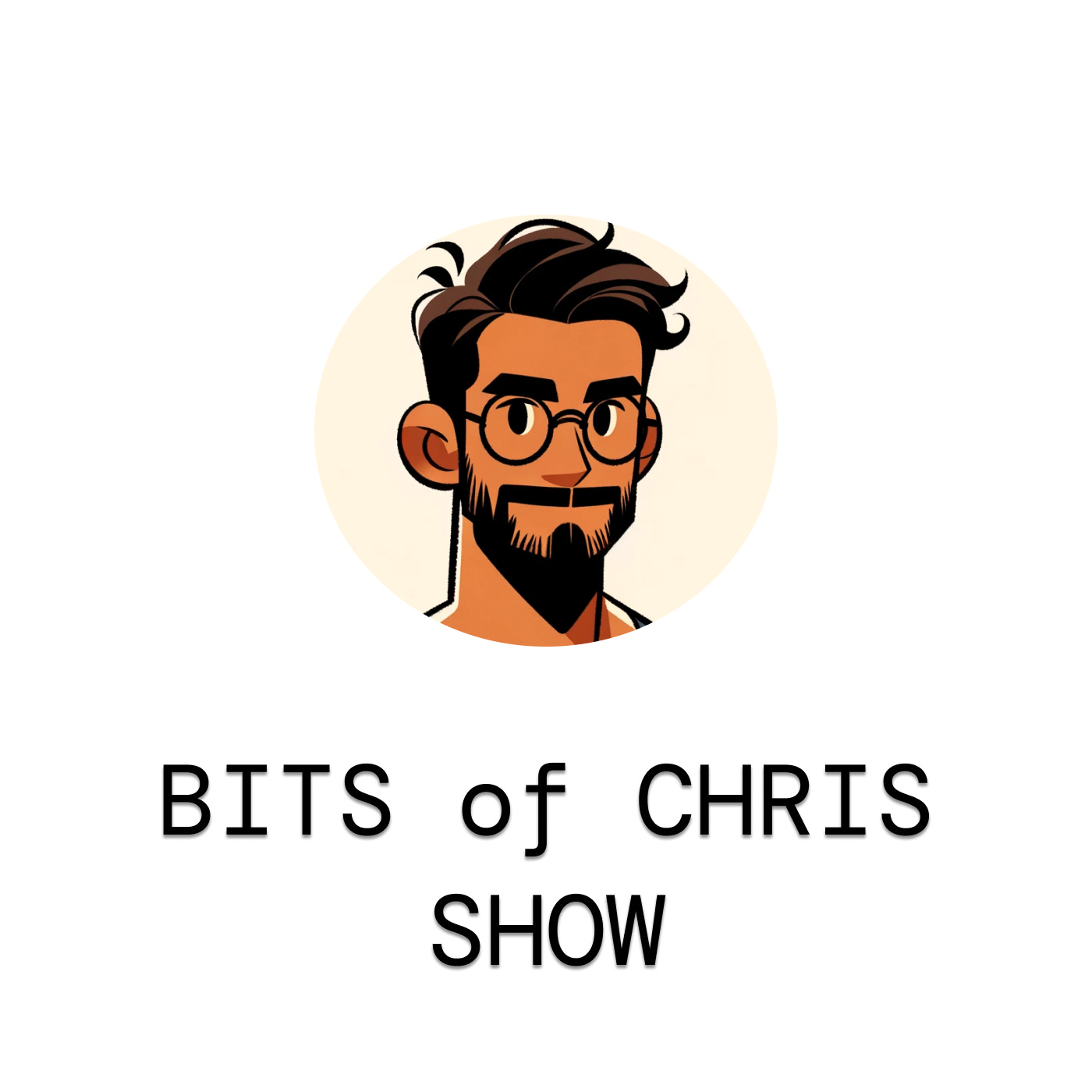#1 - 30 Days of Podcasting, Writing, and Joyspan
Episode Description* Expectations for the next 30 days* Reflections on writing for 45 days straight* Struggles finding a niche* Joyspan - the framework that fits all my interests* How to maximize your JoyspanTranscript Hello. I just think on. All right. I think so. Well, hello, everyone. Welcome to the first episode of the bits of Chris' podcast. I am not sure what I'm doing. So please bear with me. But for the next 30 days, I figured why not record myself speaking and try to figure this out. So here we are. I'm sure it's going to be. Bumpy and I'll make mistakes. And like I said, Not really sure what I'm doing. So we're just gonna learn as we go, please. Any sort of feedback or suggestions would be appreciated, even if you tell me I suck because then. I can think about it. What, what actually sucked? What, why didn't you like, how can I do this better? So let's get into it. My me try to speculate how I think this is going to go. And then maybe get into the reason why I'm going to do it for 30 days. And then I'll give a little context of where this all came from and what I learned from trying to write 45 days straight to start the new year and where we ended up. So one thing I think will happen is between this first episode and 30 days from now, We'll have 30 episodes, which has given me pretty cool. Assuming I don't give up halfway, which, because I'm telling you I'm going 30 days. I don't think I will give up halfway. If I do, you can call me out on it. But I do think the tooling and the scripting and the flow of the episodes and the structure is going to get so much better by the end of it. I also have no idea on how to take the show notes or how to organize things. So we'll see how that improves too. I don't have a logo yet. I don't have much of a name, I guess we'll just go with the bits of Chris' podcasts, but it should be fun. One thing I do know is I had a taste of podcasting at work earlier this week, and it was a blast. I started emceeing this community meeting and at the end. I decided to add a new segment with some feedback from folks. To interview a person. In that meeting live and that was so much fun. That I was like, this, this is a signal I need to talk more. I, I like doing this, so that's the one thing I do now. So even though I'm not qualified yet to really have a podcast, I know it's a lot of fun, so I really don't care. So I promise you over the next 30 days, I'm going to learn some stuff. This will get incrementally better, especially if you're giving me feedback. And it's also, I think, a fun way for me to explore ideas. I've had a lot of ideas and I've been trying to write more online. But writing is slow. And I think you have to be more polished when you write. But podcasting, like anybody can start one. You're just talking into a microphone and who cares if nobody listens, but at least you're getting your words and thoughts out there quicker. So I'm going to try for that sake, like exploring the ideas, maybe outlining future things I might want to write about. Or just giving me an outlet to talk. So I don't drive my wife crazy from talking too much. Or I think even chat GPT has had enough of hearing from me. With all my ideas and questions and things I want to explore. So I think this is going to go great. I'm excited to see what happens over the next 30 days. And let's just get into today's episode. So, as I mentioned earlier, To start the new year and actually even a little before then. I was writing every day online and publishing something short. And I did that for, I think, close to 45 or 50 days in a row. Where I would wake up generally had an outline in place from the night before. And I would write. 300 to 600 words. Try to quickly edit it and then publish it. And this was. Obviously new for me. I had been writing online for a few years, but very ad hoc, like maybe something once a month. Once a week, never anything this intense. And also rarely publishing it in a place where people could see it. So a big part of this challenge was to put it out on social media where you could actually get in front of readers. Forever. I just had it on a personal blog that I'm pretty sure. A hundred people a year might've came across from Google. If, if that, so this was actually more intimidating. I thought just like doing this today is because you're getting content right in front of people and sharing it. So that was interesting. But one thing. Doing this 45 day challenge was you get to go through ideas very quickly and you get to iterate on a bunch of stuff quickly, and you get feedback very quickly. And all that helps you figure out what you like. What you like to talk about? What's working like what other people like, and find interesting. And so I try to pick a specific niche. For that, and I kept changing it and I'm still sort of changing it. Some of the advice you get when you start writing online, if you want to build an audience is to get super specific and niche down. And the people that fit that niche will resonate so greatly with what you're saying, that they'll start following you or the internet will help you find those people. All those platform algorithms will bring you the exact people that are looking for the content. If you're speaking to them, Well, I find that very challenging because I have a lot of things I want to talk about. And a thing I've been struggling with for the past four months or so. Has been trying to put myself into one box and niche down to, to speak to a single. Audience or on a single topic. And I don't know if it's just me or if I haven't found it yet, but I can't do that. So. One thing, the writing for 45 days straight and what this podcast is, hopefully can help me explore is what's most fun for me to talk about. Now I've definitely narrowed it down to a lot of topics. And I think. If you're interested in writing or creating content, you don't want to just. Sit. In your room and plan and think about it. I think you need to balance what I've called the learn. Do reflect or learn, do think cycle. Where you consume some information, but then you spend equal time doing, like using that information, whether that's creating or writing code. And then you spend a little bit of time reflecting, like thinking about the process. Thinking about what it means, thinking about what you like. And so with the 45 day writing challengeI was so busy doing, I didn't have much time to consumer reflect. And I think that was good because it jolted me out of a cycle that most of us are in, I think, which is. We consume way more than we produce. And once you get going with the PR producing, you learn a lot and you start to figure out what, what you do like to talk about what you do have a lot to say about. And we'll get into that journey, but that's what I want to use this podcast to explore is. A lot of these different topics. But ultimately where I'm at today is. I'm a staff engineer at a data company, mainly focused on data analytics. I'm a former day trader. And I w. Years ago, wrote a small book on the basics of personal finance. And I find this money part of myself. I just really enjoy talking about investing, trading money and I've put that on the back burner for a long time. While I focus on growing my tech career. But it keeps coming back. And I think that's a signal that I should pay more attention to that part. So the topics I kind of have in mind for the rest of this podcast are things around money trading and investing, especially at the intersection of data and data engineering, which is what I do for work now., especially around like cryptocurrency markets and web three, because the technical nature of those different platforms and the different tokens that are being created are really fun or interesting to me. Also have a couple ideas around work-life balance and being a parent, how that ties into work. I have this concept of work from home fire for financial independence, remotely employed instead of financial independence retire early. I want to explore that. I'm not really sure what that means, but it just, it sounds catchy to me and I like the idea. For work and for more engineering focus stuff, I've been thinking a lot about how to adapt to AI. And so I've been calling my philosophy there, the augmented engineer, which basically is stating AI as a tool, we should focus on investing in skills that AI can't replace, like our thinking and our soft skills and communication. So I hope to explore more of that. And then ultimately in looking at these different. Ideas in these different pockets of. Specialization that I was considering writing about. They all sorta overlapped around this thing of making more money or making more time. And I started to reflect on why that was or what am I trying to get at? And that's what led to this idea of my life philosophy being to maximize my joy span. Joyce man, being the amount of moments in time over your life that you're spent in a state of joy. Joy being when you lose track of time, when you're in that flow state, when you're doing an activity that fully absorbs you. And when you're spending time with people where you just lose track of time. So spending quality time with loved ones, for example, That's what I've defined as joy and. That's the philosophy I was. Sort of trying to define. And how all these different pieces fit together. It made sense to me. So the joist fan philosophy won't get into too much, but that's the basis of it. And there was three pillars of how to maximize your joy span. One being to make more money. And then within that make more money pillar. You can grow your career. You can invest money. And you can do complimentary projects that could become income-producing assets, but at worst are teaching me new skills or fun stuff for you to learn. The second pillar was to make more time. And this is around productivity, longevity. And using money to buy back time, whether that's upgrading something or hiring things out. And lastly was to make more joy. And the way to do this was to explore your actual hobbies, figure out what you like, try to find your eeky guy. And what you enjoy doing? As well as nurturing relationships. So you have a strong bed of relationships, strong families, strong friendships. To enjoy life with. And then doing a bit of mindfulness. So you're aware of when you're outside the present moment and when you're removing yourself from the ability to be lost in flow and enjoy the moment. And so that framework. Maybe isn't my. Like purpose in life, but it felt. Very complete and that all these ideas I had that I wanted to write about. Fit inside different buckets of that. So I liked it as a central theme to tie together what I want to talk about and write about. And that's what we're going to be exploring over these next 30 days. So thank you for listening. This is getting a little bit longer than I want. I think most episodes should be in that 10 to 15 minute range as I figure this out. If you made it this far. I'm truly honored for you to have spent your attention on my voice. And what I have to say. So thank you. But really any feedback is welcome. Good. End bet. I am just in this to learn, so I won't take it personally. So please. Any sort of signal would be useful. And I hope. To see tomorrow. Thank you for listening. Cheers. This is a public episode. If you would like to discuss this with other subscribers or get access to bonus episodes, visit bitsofchris.com

11m